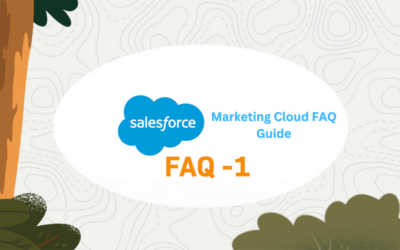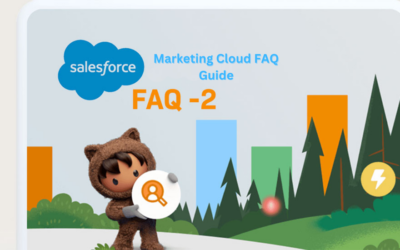In today’s digital landscape, Artificial Intelligence (AI) stands as the bedrock upon which transformative technologies and business strategies are built. At the forefront of this AI revolution is Salesforce, a global leader in Customer Relationship Management (CRM) solutions. Salesforce’s integration of AI into its suite of tools has ushered in a new era of efficiency, personalization, and data-driven decision-making for businesses. However, as the reliance on AI within the Salesforce ecosystem grows, so does the imperative of ensuring responsible and ethical AI adoption.
AI has the potential to drive unparalleled value for organizations, but it also presents profound ethical challenges. It’s no longer enough to solely focus on the technical prowess and innovation of AI; we must equally prioritize the ethical considerations surrounding its development, deployment, and use. This comprehensive guide delves deep into the pivotal realm of Salesforce AI ethics, where we’ll explore the principles, challenges, and strategies that underpin the foundation of responsible AI adoption. If you need assistance with Salesforce CRM setup and optimization, companies like CRM Force can provide valuable expertise and support.
1- The Importance of Ethical AI in Salesforce
Why Salesforce AI Ethics Matters
Before embarking on our exploration, it’s essential to underscore the significance of ethical AI within the Salesforce ecosystem. Salesforce AI is not merely a set of algorithms; it is the engine powering customer engagement, marketing automation, predictive analytics, and intelligent decision-making for businesses worldwide. Ethical AI isn’t just a desirable add-on; it’s a necessity to maintain trust with customers, partners, and stakeholders.
In a world where AI systems wield tremendous influence over our daily lives, the ethical considerations around these technologies are paramount. Misguided or irresponsible AI deployment can lead to discrimination, bias, privacy breaches, and a loss of public trust. In contrast, ethical AI adoption fosters transparency, fairness, accountability, and respect for fundamental human rights. It’s a foundational principle that can elevate AI from a mere tool to a force for positive change.
Understanding Ethical AI: In the technical context, ethical AI involves developing AI models and systems that are not biased, discriminatory, or harmful. This includes careful data preprocessing to remove biases, the use of interpretable algorithms, and adherence to ethical guidelines throughout the AI development lifecycle.
Why Ethics Matter in AI: Ethical AI in Salesforce is crucial because it affects how AI models make predictions and recommendations. Technical aspects include creating models with fairness checks, auditing model outputs for biases, and implementing transparency measures such as model interpretability techniques.
The Consequences of Unethical AI: From a technical standpoint, unethical AI can arise due to biased training data. It’s essential to regularly evaluate models for bias using techniques like disparity metrics and retraining models when biases are identified. Additionally, robust data security measures are needed to prevent privacy breaches associated with AI systems.
2- Principles of Ethical AI in Salesforce
Transparency: In the technical realm, transparency involves providing users with insights into how AI decisions are made. Techniques like Local Interpretable Model-agnostic Explanations (LIME) or SHAP (SHapley Additive exPlanations) can be used to visualize the factors influencing model predictions.
Fairness: Technical approaches to fairness include adjusting training data, implementing algorithms that enforce fairness constraints, and applying post-processing methods like re-ranking or re-weighting to ensure that AI systems do not discriminate against any group.
Accountability: To implement technical accountability, audit trails should be maintained for model decisions, including the data used for training, the model architecture, and the configuration parameters. These records can be crucial for diagnosing and addressing issues.
Privacy and Security: From a technical perspective, privacy-preserving techniques like differential privacy can be employed to protect user data. Encryption, secure multi-party computation, and robust access controls are necessary to safeguard sensitive data within Salesforce AI systems.
3- Challenges in Implementing Ethical AI in Salesforce
Data Quality and Bias: Addressing data quality and bias challenges requires data preprocessing techniques such as data augmentation, bias correction, and fairness-aware machine learning algorithms. Regularly monitoring model performance for bias and fairness is also crucial.
Lack of Ethical Guidelines: Salesforce should create technical guidelines that outline best practices for ethical AI development. This includes specifying data collection and annotation processes, model evaluation metrics, and guidelines for addressing issues when they arise.
Explainability: To make AI decisions more explainable, technical methods like Integrated Gradients, SHAP values, and attention mechanisms can be applied. These techniques can help users understand why a particular decision or recommendation was made.
Scalability: Implementing ethical AI at scale in Salesforce may involve the use of distributed computing frameworks and cloud services. It also requires the development of standardized ethical AI tools and practices that can be applied consistently across various AI applications within the organization.
4- Strategies for Ensuring Ethical AI Adoption in Salesforce
Ethical AI Training: Technical training should include educating data scientists and AI developers on bias detection and mitigation techniques, fairness-aware algorithms, and privacy-preserving methodologies. Tools like TensorFlow Privacy and FairML can assist in this training.
Bias Mitigation: Technical bias mitigation involves using debiasing algorithms like adversarial training, re-sampling, or re-weighting during model training. Additionally, fairness constraints can be incorporated into optimization objectives to reduce bias.
Third-Party Audits: Third-party audits of AI systems may involve technical assessments of model code, data pipelines, and deployment infrastructure. Auditors may use fairness evaluation libraries like AI Fairness 360 to analyze models for bias and fairness.
Community Involvement: Engaging with the AI ethics community from a technical perspective can involve participating in forums, conferences, and open-source projects focused on ethical AI. Salesforce can also collaborate with researchers and organizations working on ethical AI standards.
5- The Future of Ethical AI Adoption in Salesforce
Evolving Regulations: Adapting to evolving AI and data protection regulations requires continuous monitoring of legal requirements. Salesforce must have technical mechanisms in place to ensure compliance, such as data anonymization techniques and audit trails.
Ethical AI as a Competitive Advantage: Technical aspects of leveraging ethical AI as a competitive advantage include prominently showcasing ethical practices in marketing and documentation. Salesforce can also develop AI features that allow users to customize and audit ethical considerations in their AI models.
Continuous Improvement: Achieving continuous improvement in ethical AI involves ongoing model retraining, data analysis, and feedback loops. Technical teams must regularly assess model fairness and performance, as well as stay up-to-date with emerging ethical AI research.
In summary, each chapter, when examined from a technical perspective, underscores the practical measures, tools, and strategies that Salesforce can employ to ensure the responsible and ethical adoption of AI within its CRM platform. Technical considerations are essential in translating ethical principles into actionable steps for AI development and deployment.
Conclusion
In closing, the journey of ethical AI adoption within Salesforce encapsulates a profound realization: ethics and technology are inseparable in the modern era. The convergence of ethical principles with technical innovation is not just a trend; it is a necessity. As Salesforce continues to shape the landscape of customer relationship management through AI, it must remain steadfast in its commitment to transparency, fairness, accountability, and privacy. These principles are not merely ideals; they are the compass guiding AI’s transformative power towards responsible, trustworthy, and sustainable solutions.
In the grander context of AI adoption, Salesforce’s dedication to ethical AI serves as a beacon of inspiration. It illuminates a path that all organizations navigating the AI landscape should tread with diligence. The responsible and ethical integration of AI technologies is not just a competitive advantage; it is the assurance of a future where technology enhances human potential without compromise. As the AI adoption journey unfolds, let it be marked not only by innovation but by the unwavering commitment to ethical excellence, where AI becomes a powerful ally for humanity’s progress. To learn more about how CRM Force can assist you in recruiting top CRM talent and optimizing your CRM strategies for successful drip campaigns, contact us today. Together, let’s maximize your customer engagement Contact Us today.





